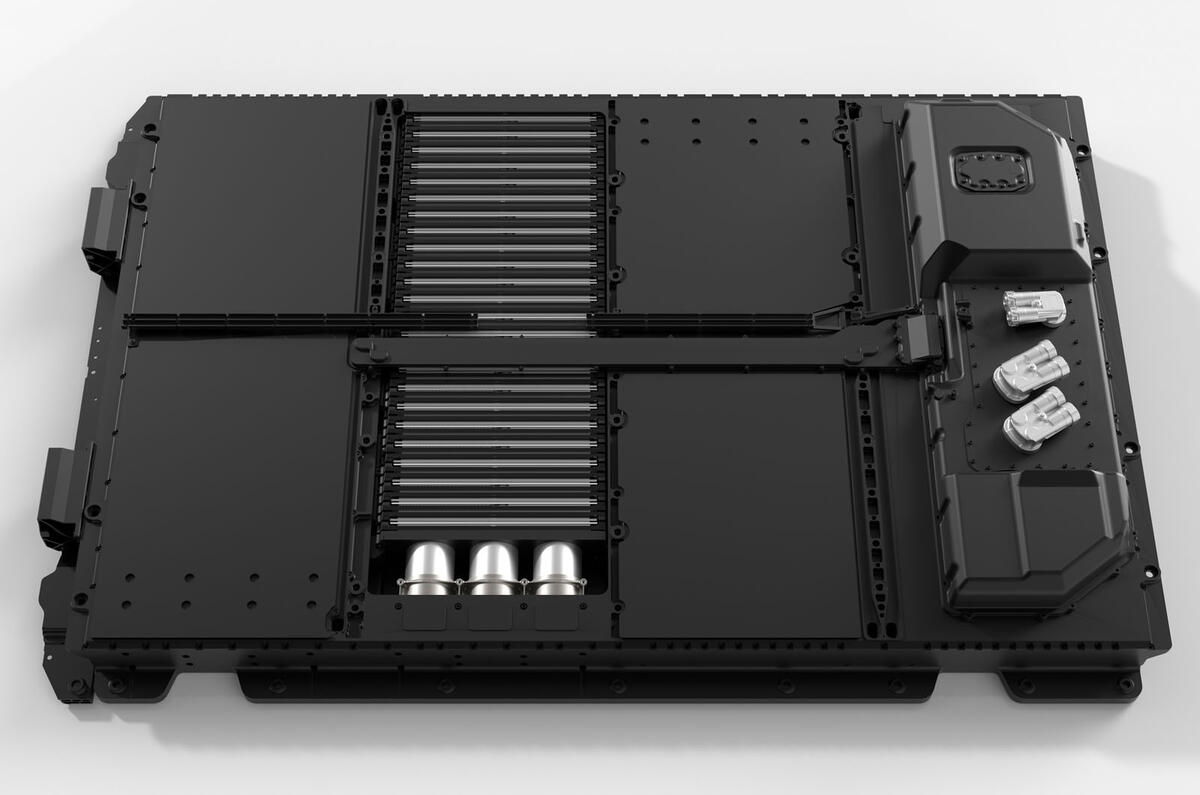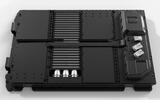A Mercedes-Benz EQS fitted with a prototype solid-state battery has been driven 749 miles without stopping to recharge, marking a milestone in the development of the technology.
Mercedes engineers drove the modified saloon from the firm’s home town of Stuttgart, Germany, to Malmö, Sweden. It claims to have finished the trip with 85 miles of range left in reserve.
Although the route between the two cities would typically measure around 630 miles in length, the engineers plotted an alternate course accounting for the landscape and traffic conditions, while avoiding ferry crossings. That extended the drive by more than 100 miles.
The car’s solid-state battery uses cells from US firm Factorial Energy while the pack was designed in collaboration with Mercedes’ F1 base in Brixworth, Northamptonshire. Its weight and footprint are said to be “comparable” to a standard EQS’s lithium-ion pack – which yields up to 481 miles of range – but its energy capacity is said to be improved by 25%.
The battery pack uses a floating cell case with pneumatic actuators that help to manage the expansion and contraction of the cells in operation, to improve their stability and longevity.
Mercedes had previously expected the new pack to improve the car’s range to around 620 miles.
Chief technology officer Markus Schäfer hailed the technology as a “gamechanger”, saying the successful test drive shows how it can deliver “a new level of range and comfort”.
Schäfer added that Mercedes is aiming to bring solid-state batteries – which have long been considered a major breakthrough for electric cars, but which have faced decades of delays – to market this decade.
That matches the timeline quoted by the rival Volkswagen Group, which has unveiled its solid-state prototype at the Munich motor show. Rather than testing the technology in cars, however, it has opted to use a motorbike built by Audi-owned brand Ducati.








Join the debate
Add your comment
I'd like production versions of solid state batteries to be smaller than the batteries they are replacing, lets say maybe a 20% increase in range with an X% decrease in the car's weight thanks to the lighter pack. This decrease in size could allow rear passengers to get their foot wells back so they can have their under thigh support back. Just a thought.
Now all we need is a solid state bladder that can go 749 miles without stopping.
Just need to get the charging infrastructure sorted and then more of us might buy an EV.
100% agree. It's not range anxiety, it's charging anxiety. I wanted to borrow a friends Taycan for a long family trip. I looked at the zapmap for various places we were going, most had issues on 50% of the chargers! When did a regular driver care about petrol range in a car? They don't, as I can find a fast, reliable 'liquid charger' within a few minutes of anywhere. It won't be broken, it won't have someone parked in the bay for hours when I get there and it's cheaper than a public EV charger! Imagine getting to a petrol pump and being told, sorry this is a slower one than usual and will take you 2 hours, not 15 mins...
Previous EV driver here. Public charging needs to be better than "quite OK" and it needs to cost far, far less than it does at the moment. For people like myself without at home charging, these 2 things are a necessity before we can adopt EVs.